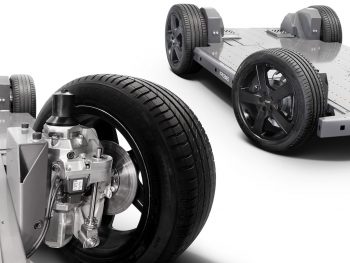Four new automotive projects addressing electric vehicle range anxiety and costs have received major government and industry funding.

The programmes have secured almost £92m in combined government and industry funding, helping to find solutions to decarbonise commercial and heavy-duty transport.
Projects that have secured funding include work led by Sprint Power in Birmingham to create ultra-fast charging batteries for electric and fuel cell hybrid vehicles that can charge in as little as 12 minutes. The CELERITAS project has been awarded £9.7m.
Meanwhile, £26.2m has been committed to a project led by BMW Group to develop an electric battery in Oxford that will rival the range of internal combustion engines.
A further £41.2m will go to a project led by REE at its Engineering Centre of Excellence at the MIRA technology park in Nuneaton to develop a single compact module for fully flat EV platforms, providing more room for passengers, cargo and batteries.
And the final tranche of the funding, covering £14.6m, is being allocated to work spearheaded by Cummins to develop a zero-carbon, hydrogen-fuelled engine in Darlington, to help decarbonise heavy-duty commercial transport.
The funding has been awarded under the latest APC18 competition from the Advanced Propulsion Centre, which said the four transformational programmes are forecast to create and safeguard thousands of UK jobs, boost the UK’s automotive supply chain, and remove emissions equivalent to 1.3 million cars, accelerating progress towards 2050 climate targets.
Ian Constance, chief executive at the APC, said: “These projects tackle some really important challenges in the journey to net-zero road transport. They address range anxiety and cost which can be barriers to people making the switch to electric vehicles and they also provide potential solutions to the challenge of how we decarbonise public transport and the movement of goods.
“By investing in this innovation we’re taking these technologies closer to the point where they are commercially viable, which will strengthen the UK’s automotive supply chain, safeguard or create jobs and reduce harmful greenhouse emissions.”

